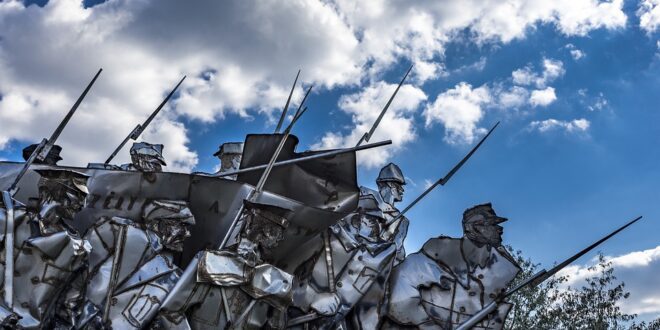How Political Systems Work: An Insight Into the Power Play Among Ruling Parties
From monarchies to democracies, each political system functions with its own set of rules and unique power dynamics. Understanding these structures can help give us an idea of the kind of people and institutions that have the authority, how decisions are made and how power and influence is maintained. This is often referred to as the power play or balancing act between different forces in politics, and it is dynamic in nature. Let’s explore some key aspects of political systems and the power play within it.
The Leadership Structure: Who runs the show?
Every political system has a leader at the top of the authority figure chart, whether it´s the king or queen, president, chairman or prime minister. The method of selecting these leaders differs in each political system, and in some cases is not even directly done by the people. How much power the leader enjoys also depends on the political system as well as the leader’s ability to influence others.
For example, in countries with a parliamentary system, like the UK, the leader (usually called the Prime Minister) is the head of the political party that has a majority in the parliament. In such a scenario, while individually the leader may not have absolute power, the position comes with incredible clout through the ability to influence collective decision-making for viable coalition strategies.
On the other hand, monarchies rely on the birthright. The ability to make decisions in tandem with councils consisting of elders might be shared. Such enterprises encourages divided control, making it hard for one to bear all the weight of consequence.
The Different Bureaucratic Branches and Administrative Structuring
Usually, the leaders of the government have staff ensuring the execution of government orders. In democratic societies, representatives are elected down to the lowest level of governance, managing elementary departments such as schools, law enforcement, and such. An array of these key players, in turn, operate the branches of the bureau developing and advising policies, regulations and essential details.
These branches work closely with the internal as well as global networks to ensure fundamentals to effectively form domestic policies. Their modus operandi also helps in the management of the budgets and various entities; essentially ensuring checks and balances are put in place.
The Ruling Party and Opposition
Every political system is distinguished groups within itself: the ruling and the opposition parties. Countries with a multi-party system have no doubt a more competitive level of governance, with multiple populist entities vying for power.
Politics is a game of balance, working with differing viewpoints to maintain the uniformity of development. The opposition parties operate to expose the shortcomings of the ruling party both socioeconomically and politically. They are instrumental in ensuring that honesty and transparency be observed in rule making and influence policies most valuable to the section they represent.
The Free Press and Media
As a part of the triad of freedom, press and media have enjoyed immense consideration especially since the early years where censorship reigned supreme. They have a stellar role in working as intermediaries of quality that help inform the public of agendas hewn out by our representatives.
Regardless of the mode of audience engagement, the free press is pivotal in being the voice of reason and critique of the sections of the government. They always ensure capturing the attension of the general populace, spotlighted whistle blower information and highlighting social inequality.
In conclusion, every country has different political hirarchial setups, coexisting regulatory branches, mutually embracing honesty and transparency, efficacy, and alike in governance. This power play for uniform development proves to be a cyclic rather than recursive: providing motion to ensuring that all voices are heard, and communities are united towards progress despite the obstacles faced over time. Bearing these details, it behooves us to fully be knowledgeale and be a part of smarter decision-making thus empowering communities nevetheless, improving our systems permanently on the path to perfection.
 Mind Uncharted Explore. Discover. Learn.
Mind Uncharted Explore. Discover. Learn.



